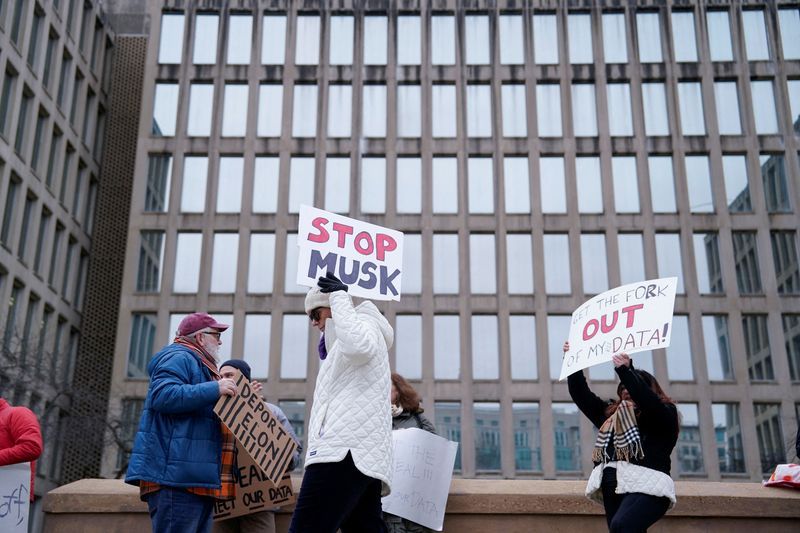BJP supporters, led by Mangaluru City South MLA Vedavyas Kamath, protested against the jammers installed in the district’s jail. “People are not able to access the internet or even make phone calls within a 1.5-2 km radius of the jail,” said Vedavyas Kamath in an interview with MediaNama.
“If you look at the surroundings of the jail, we have many schools, banks, and a police station. Even the Udayavani newspaper’s branch office is just 500 meters away from the jail. Everything is being affected because of the jammers inside the jail.

The bank seems to have some sophisticated networks, but the common man has been suffering a lot for the past 10-15 days,” Kamath added.Mangaluru’s case is not an isolated incident. Since last year, Bengaluru residents around Parappana Agrahara Central Prison — which was under scrutiny for alleged privileges given to Tamil Nadu’s late CM Jayalalithaa and Sasikala — have been complaining about the lack of network access, which denies them access to normal calls, OTPs, internet, online payments, etc.
‘No OTPs, NO UPIs’“We are suffering a lot,” said M. Arivarasu, a resident of Parappana Agrahara in Bengaluru. “Because of these jammers, we are not receiving any OTPs, so we can’t use UPI payments.
”Parappana Agrahara Central Jail has installed 19 new Tower-Harmonics Call Blocking System (T-HCBS) jammers inside the jail, and all were approved by Telecommunication Consultants India Limited (TCIL), a Central government agency, to tackle 5G networks as well, he said.Vedavyas Kamath said that five new 5G-powered jammers were installed. “Earlier, 3G-powered jammers were fine.
These new jammers are causing us problems,” he told MediaNama.Previously, the older versions of jammers were underpowered. 5G-powered smartphones were used to bypass the jammers’ attempts to block signals.
Now, the overpowered jammers are causing serious issues for residents around the jail.“The increased power of the T-HCBS jammers, now reaching nearly 1 kilometer, is causing significant disruption to the surrounding community,” read a petition written to MP C.N.
Manjunath.Major Problems Due to JammersAccording to the petition accessed by MediaNama, these are the issues residents of Parappana Agrahara are facing:Communication disruptions jeopardize safety, hindering access to emergency services and GPS.OTPs for online transactions are delayed or not received.
UPI payment issues are affecting merchants’ transactions.Network outages disrupt work, education, and daily activities.Students face difficulties with online classes due to connectivity problems.
Tech professionals are losing jobs due to call drops and meeting disruptions.The police station near the jail faces communication breakdowns from a T-HCBS jammer.‘We are Helpless’“Because of the lack of network, we couldn’t call the ambulance, and we even lost a life,” said Arivarasu, referring to the death of Nayan Soren, 29, a migrant from Odisha who died due to electrocution.
“We had to run for 1 km to call for the ambulance,” he said, expressing their helplessness.After a meeting with Malini Krishnamurthy, Director General (DG) of Prisons and Correctional Services, TCIL decided to send the 19 jammers to Bhopal for recalibration. However, Arivarasu alleges that the jammers were never taken to Bhopal, as the problem still persists — even as he was speaking to MediaNama over the phone.
“We even requested our Bengaluru South MLA, M. Krishnappa, as well as our MP C.N.
Manjunath. No action was taken by any of them. We are helpless,” he added.
“We have given representations to Karnataka Home Minister G. Parameshwara, the District Collector, and the jail superintendent as well. No one cared for us.
That’s why we decided to protest in front of the jail,” said Vedavyas Kamath.‘Violation of Fundamental Rights’“This is a serious infraction of the fundamental rights of residents. It is a known fact that prisoners don’t enjoy all fundamental rights.
But in the name of stopping crimes from inside the jails, the authorities cannot curtail the fundamental rights of law-abiding citizens outside the jail,” said B.V. Seshagiri, an advocate and social rights activist, in an interview with MediaNama.
The right to access the internet is a fundamental right of citizens, as declared by the Supreme Court of India in 2020. “We declare that the freedom of speech and expression and the freedom to practice any profession or carry on any trade, business, or occupation over the medium of the internet enjoys constitutional protection under Article 19(1)(a) and Article 19(1)(g),” read the judgment.The Crime Goes On“A lot of scams are happening inside the jail.
Recently, we have seen what is happening in Bengaluru’s central jail. How are smartphones entering the jail?” asked Arivarasu.He was referring to an incident that happened one month ago, where a murder was orchestrated by prisoners using Instagram and WhatsApp from inside the jail, revealed Deputy Inspector General (DIG) of Prisons (Northern Range), T.
P. Shesha, in a letter written to DG of Prisons Malini Krishnamurthy.“Jails already have high raised walls and a single point of entry.
If phones and smartphones are entering jails, then jail officials have to increase internal vigilance. They must ensure that protocol is being followed,” Seshagiri added, saying that absolute use of jammers in public spaces is not ideal if it obstructs the fundamental rights of citizens.On one hand, the installed jammers are causing severe second-order effects on the residents living near jails.
On the other hand, the jammers are not entirely successful in deterring the use of phones and internet access inside the jail. In this tug-of-war between overpowered and underpowered jammers, citizens are being jammed into corners with no network access. Should we sacrifice our fundamental right to internet access in order to deny the same to prisoners?MediaNama has tried several times to contact Bharat Electronics Limited (BEL).
We will update the article once we hear from them.General FAQs on Jammers: What are Jammers? Jammers are essentially radio frequency transmitters designed to block all radio communication on any device that operates on radio frequencies within their range.Jammers come under the purview of Indian Wireless Telegraphy Act 1933 (IWTA 1933) and the Act lays down that permission is required for possession/manufacturing and use of jammers, according to the Department of Telecommunications.
Jammers fall under the purview of the Indian Wireless Telegraphy Act, 1933 (IWTA 1933). The Act mandates that permission is required for the possession, manufacturing, and use of jammers, according to the Department of Telecommunications.Who has the Right to Use of Jammers?According to guidelines issued by the Cabinet Secretariat, jammers can only be procured and used by state police departments, jail authorities, and security agencies under the Union government.
Additionally, jammers can be used in examination centers. However, for such temporary use cases, examination bodies (like NEET and UPSC) cannot directly procure jammers. Recently, the Karnataka High Court also advocated for the use of jammers in examination halls.
It is important to note that the defense forces (Army, Air Force, Navy, Coast Guard) are not bound by these guidelines. They are entitled to use military-grade jammers for national security purposes, such as at international borders.Other than the bodies authorized by the Cabinet Secretariat, no one has the right to use jammers.
The illegal possession and manufacturing of jammers is a violation of the Jammer Guidelines (2023). Who has the Right to Manufacture Jammers?As per the guidelines, jammers can only be manufactured by the Electronics Corporation of India (ECIL) and Bharat Electronics Limited (BEL). Jammers made by these companies must be procured by approved nodal agencies of the government.
The responsibility for operations, management, and ensuring the effectiveness and security of jammers lies with the vendors — namely ECIL and BEL.Also Read: CCPA wants e-commerce firms to stop selling wireless jammersIndia’s consumer protection authority issues notice to e-commerce platforms on sale of acid Why did India’s Consumer Authority issue orders against e-commerce platforms? The post Fundamental Rights at Stake? BJP Protests Signal Jammers in Prison appeared first on MEDIANAMA..
Technology

Fundamental Rights at Stake? BJP Protests Signal Jammers in Prison

Residents near Mangaluru and Bengaluru jails are protesting over 5G jammers disrupting their internet, calls, and daily lives.The post Fundamental Rights at Stake? BJP Protests Signal Jammers in Prison appeared first on MEDIANAMA.















